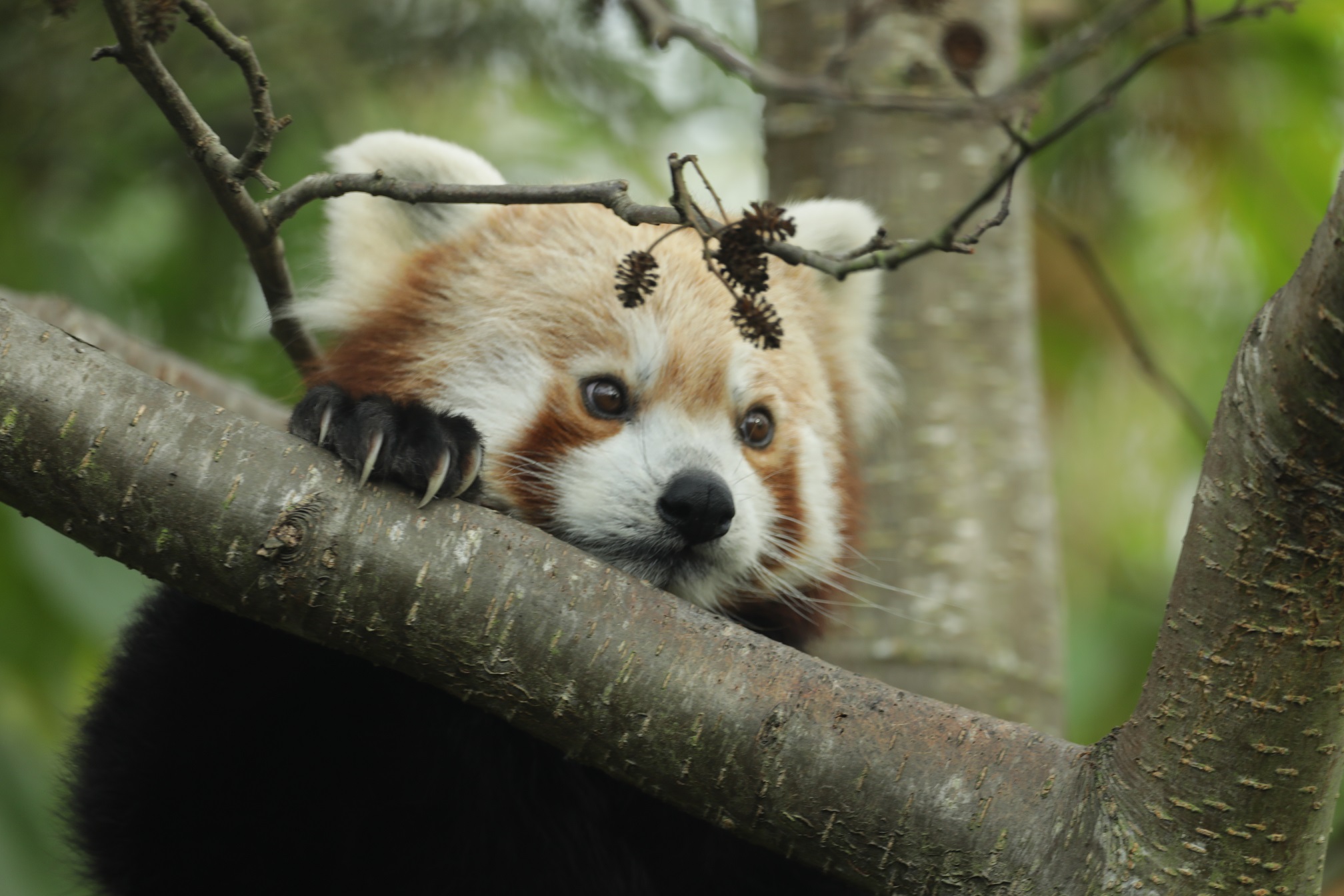Conservation work to put a pen-grin on your face
Posted 14 Nov 2022

If you’ve ever visited the Royal Zoological Society of Scotland’s (RZSS) Edinburgh Zoo, you’re probably aware of our connection and history with penguins. These wonderful animals never fail to capture the hearts of our wildlife conservation charity’s team and visitors alike. If you take a waddle over to Penguins Rock, you will see over 100 penguins including king, gentoo and Northern rockhopper penguins.
.jpg)
Northern rockhopper penguins
As well as caring for these incredible animals at the zoo, RZSS is actively involved in conservation efforts to protect wild populations of the Northern rockhopper. These penguins are classified as endangered by the IUCN Red List with numbers in the wild continuing to decline due to competition from marine mammals, human exploitation and predation.
This species is thought to be especially vulnerable to further population declines due to their limited breeding range. Northern rockhoppers only breed on seven small islands, five in Tristan da Cunha, South Atlantic, and two in the Indian Ocean. It is unknown whether the penguins travel between the islands in the Atlantic and Indian oceans, which makes the conservation of these populations more complex.
As they live in such remote locations, it is not always possible to directly observe their movements, but we are able to investigate using genetic data. RZSS WildGenes, based at Edinburgh Zoo, is using genetic analysis to understand whether there are movements between these islands.
RZSS, alongside project partners (including the RSPB, British Antarctic Survey and the Tristan da Cunha government), are championing an action plan to protect this iconic species and the genetic analysis undertaken by our researchers will directly feed into developing an effective management plan to protect Northern rockhoppers in the wild.
.jpg)
African penguins
But the conservation work on penguins doesn’t end there! RZSS also works to aid penguin conservation through its role as a member of the European Association of Zoos and Aquaria (EAZA), and as one of four EAZA biobank hubs.
EAZA participate in breeding programmes which help create ‘insurance populations’, ensuring a robust and genetically diverse population, which can be relied on if wild populations become too small to survive. These programmes typically target species on the IUCN Red List – such as the African penguin which is classified as endangered.
Although we don’t currently house African penguins, our WildGenes team helps to support the work of other zoos. Genetic data is being analysed by our experts, using samples provided through the major collaboration of the EAZA biobank network.
With funding from the Cryoarks UK initiative, these samples were used to assess the genetic status of individuals within the breeding program to compliment studbook data for effective management of breeding individuals. This analysis helps ensure the longevity and reliability of the breeding programme.

Planning for the future
Using genetic data, our wildlife conservation charity is working to protect endangered penguin species around the world and give them a brighter future. By helping to reverse their decline we hope to put a pen-grin back on their faces and contribute to a world where nature is protected, valued and loved.
![Northern rockhopper penguin looking directly at camera [eye-contact] IMAGE: Sian Addison 2018](https://images.rzss.org.uk/media/Edinburgh_Zoo/EZ_animals/Northern_rockhopper_penguin/northern rockhopper (3).jpg)
About this author
Dr Heather Ritchie-Parker
RZSS WildGenes Research Scientist
Heather has a background in molecular ecology and evolution. Her previous work has focused on using genetic tools to investigate patterns of adaptation, population connectivity, phylogenetic relationships, and species identification of deep-sea animals. Now, working as a research scientist within RZSS WildGenes, Heather will be applying these skills and experiences to a variety of projects including studies on Northern rockhopper penguins and beavers. Find out more.

